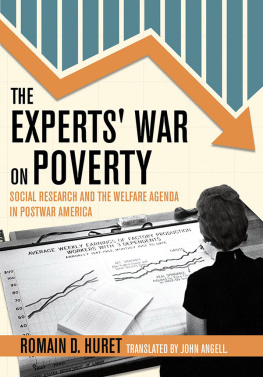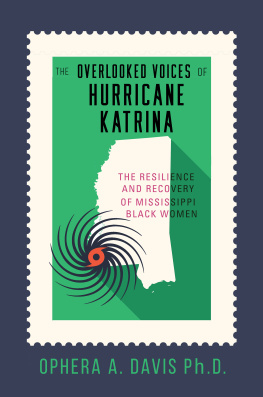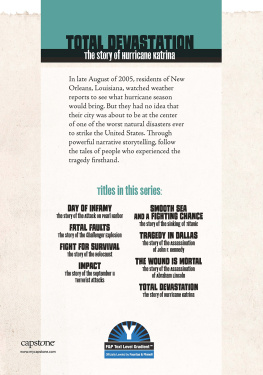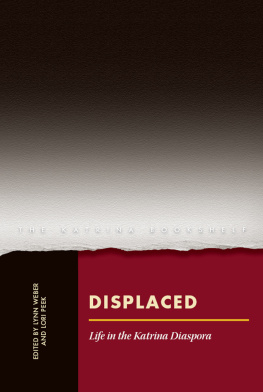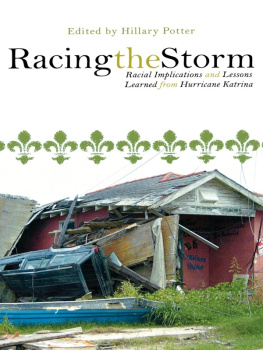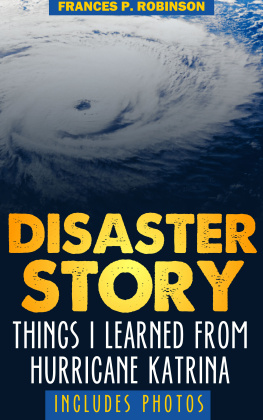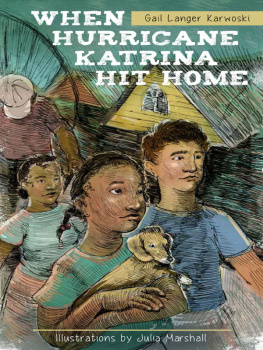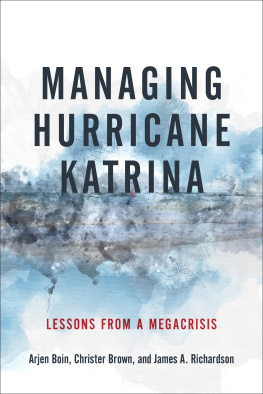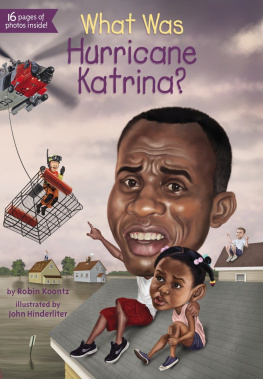Romain Huret - Hurricane Katrina in Transatlantic Perspective
Here you can read online Romain Huret - Hurricane Katrina in Transatlantic Perspective full text of the book (entire story) in english for free. Download pdf and epub, get meaning, cover and reviews about this ebook. year: 2016, publisher: Springer International Publishing, genre: Politics. Description of the work, (preface) as well as reviews are available. Best literature library LitArk.com created for fans of good reading and offers a wide selection of genres:
Romance novel
Science fiction
Adventure
Detective
Science
History
Home and family
Prose
Art
Politics
Computer
Non-fiction
Religion
Business
Children
Humor
Choose a favorite category and find really read worthwhile books. Enjoy immersion in the world of imagination, feel the emotions of the characters or learn something new for yourself, make an fascinating discovery.

- Book:Hurricane Katrina in Transatlantic Perspective
- Author:
- Publisher:Springer International Publishing
- Genre:
- Year:2016
- Rating:5 / 5
- Favourites:Add to favourites
- Your mark:
- 100
- 1
- 2
- 3
- 4
- 5
Hurricane Katrina in Transatlantic Perspective: summary, description and annotation
We offer to read an annotation, description, summary or preface (depends on what the author of the book "Hurricane Katrina in Transatlantic Perspective" wrote himself). If you haven't found the necessary information about the book — write in the comments, we will try to find it.
Romain Huret: author's other books
Who wrote Hurricane Katrina in Transatlantic Perspective? Find out the surname, the name of the author of the book and a list of all author's works by series.
Hurricane Katrina in Transatlantic Perspective — read online for free the complete book (whole text) full work
Below is the text of the book, divided by pages. System saving the place of the last page read, allows you to conveniently read the book "Hurricane Katrina in Transatlantic Perspective" online for free, without having to search again every time where you left off. Put a bookmark, and you can go to the page where you finished reading at any time.
Font size:
Interval:
Bookmark:
IN TRANSATLANTIC PERSPECTIVE
AND RANDY J. SPARKS
KATRINA
IN
TRANSATLANTIC
PERSPECTIVE
 Baton Rouge
Baton RougeCopyright 2014 by Louisiana State University Press
All rights reserved
Manufactured in the United States of America
LSU Press Paperback Original
First printing
Typeface: Corda
Printer and binder: Maple Press

Romain Huret
The Geography of New Orleanss African American Population, from Antebellum to Postdiluvian Times
Richard Campanella
Hurricane Katrina, FEMA, and the Bush Administration
Romain Huret
News Photographs in the First Weeks after Katrina
Jean Kempf
Hurricane Katrina as a Providential Catastrophe
James Boyden
Neoliberalism, Cultural Racism, and Depoliticization in the Era of Katrina
Andrew Diamond
Embodied Histories and Charitable Populism in the Post-Disaster Controversy over a Public Hospital
Anne M. Lovell
Security, Hospitality, and the Post-Disaster City
Thomas Jessen Adams
Brass-Band Morphology in Post-Katrina New Orleans
Bruce Boyd Raeburn
The Process and Politics of Commemoration
Sara Le Menestrel
Randy J. Sparks
IN TRANSATLANTIC PERSPECTIVE
Zora Neale Hurston, Their Eyes Were Watching God (1937)
Font size:
Interval:
Bookmark:
Similar books «Hurricane Katrina in Transatlantic Perspective»
Look at similar books to Hurricane Katrina in Transatlantic Perspective. We have selected literature similar in name and meaning in the hope of providing readers with more options to find new, interesting, not yet read works.
Discussion, reviews of the book Hurricane Katrina in Transatlantic Perspective and just readers' own opinions. Leave your comments, write what you think about the work, its meaning or the main characters. Specify what exactly you liked and what you didn't like, and why you think so.

